
Find Help
More Items From Ergsy search
-

What are the main types of meningitis?
Relevance: 100%
-

What is meningitis?
Relevance: 83%
-
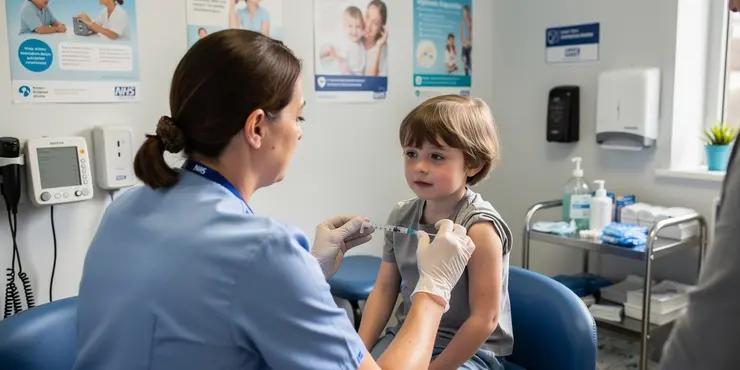
Are there vaccines for meningitis?
Relevance: 82%
-
Is meningitis contagious?
Relevance: 82%
-
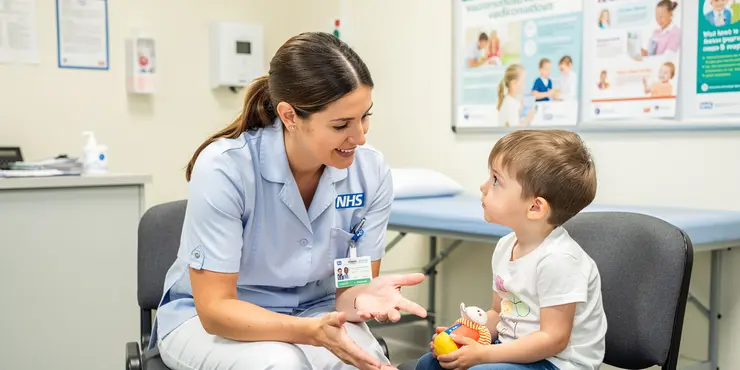
Can meningitis be prevented?
Relevance: 76%
-

How is meningitis diagnosed?
Relevance: 75%
-

What is the treatment for bacterial meningitis?
Relevance: 74%
-

What is non-infectious meningitis?
Relevance: 74%
-

Why is meningitis a medical emergency?
Relevance: 73%
-

What causes bacterial meningitis?
Relevance: 73%
-

Is vaccination recommended for seniors against meningitis?
Relevance: 73%
-
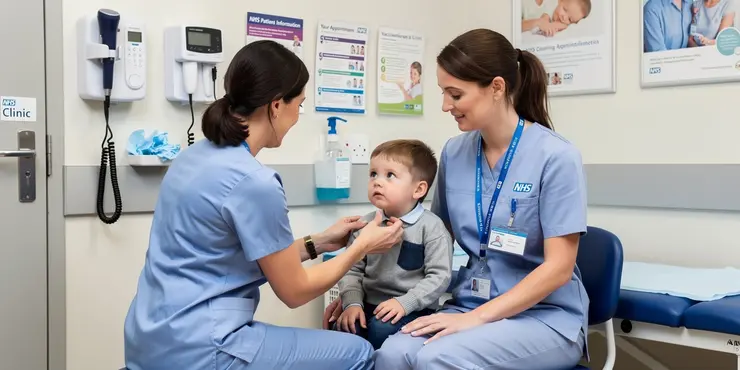
How serious is bacterial meningitis?
Relevance: 72%
-

What are the signs of meningitis in infants?
Relevance: 71%
-
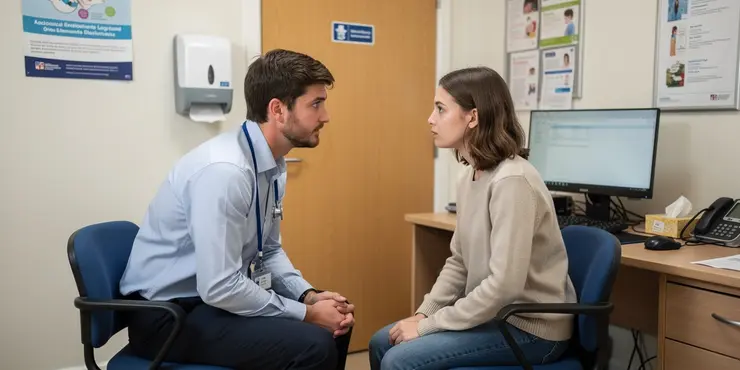
Can meningitis cause long-term complications?
Relevance: 71%
-

Are adults over 25 recommended for meningitis vaccination?
Relevance: 70%
-
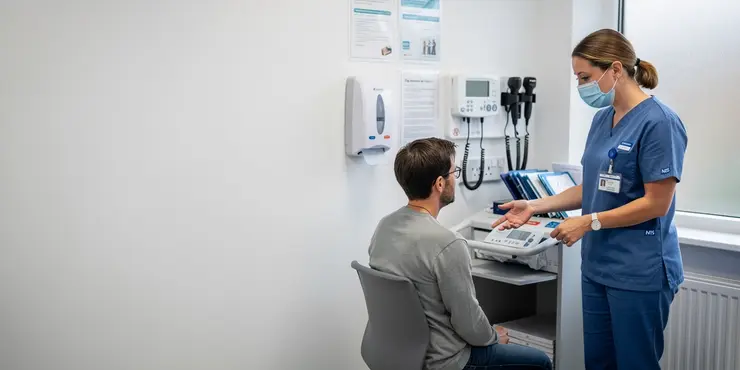
How is viral meningitis spread?
Relevance: 69%
-
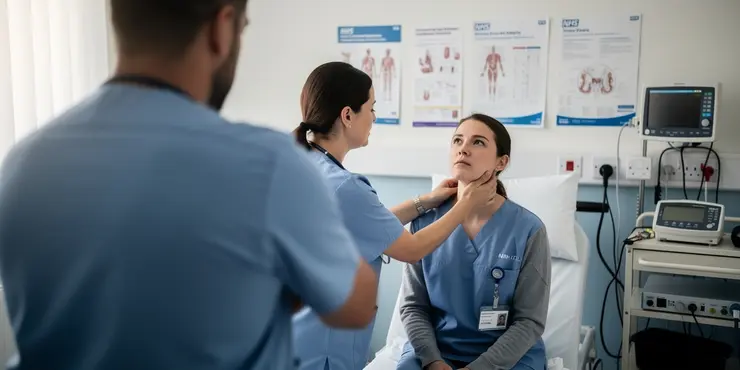
What are common symptoms of meningitis?
Relevance: 69%
-
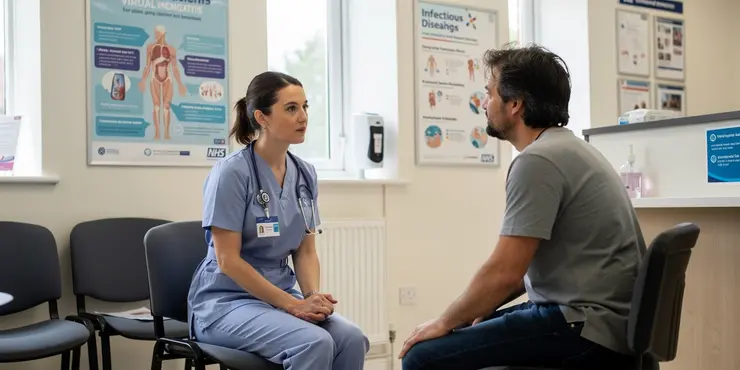
What causes viral meningitis?
Relevance: 68%
-

Is meningitis vaccination required for military recruits?
Relevance: 68%
-
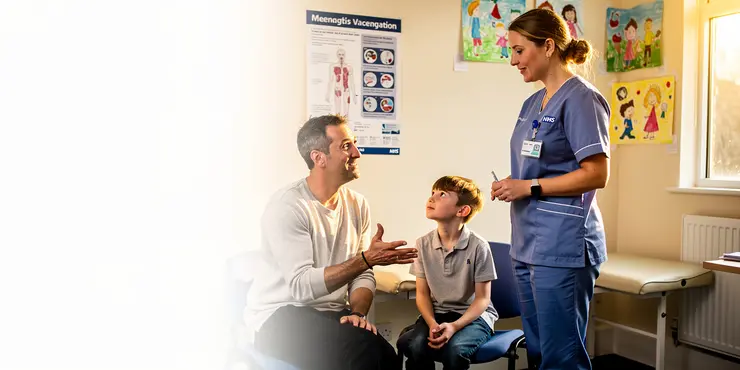
Who should get a meningitis vaccination?
Relevance: 68%
-
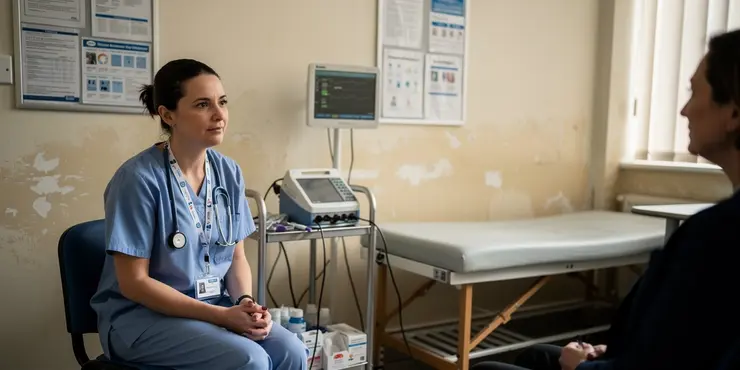
What is the prognosis for viral meningitis?
Relevance: 68%
-

Does the CDC recommend meningitis vaccines for adolescents?
Relevance: 68%
-
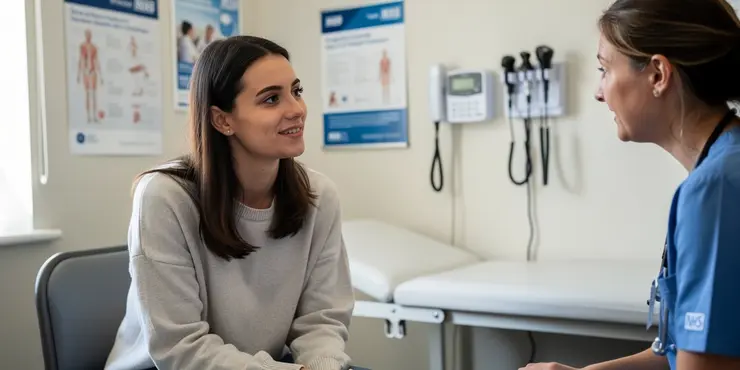
Are there any specific groups that should prioritize meningitis vaccination?
Relevance: 68%
-

Should health care workers get the meningitis vaccine?
Relevance: 68%
-

Do people who have had meningitis in the past need to be vaccinated?
Relevance: 67%
-
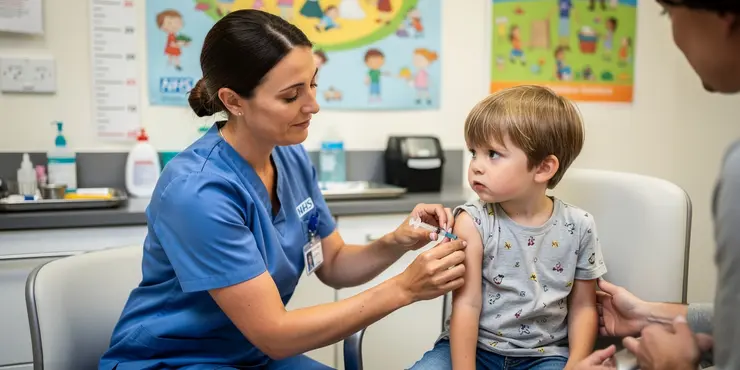
Who is at higher risk of contracting meningitis?
Relevance: 67%
-
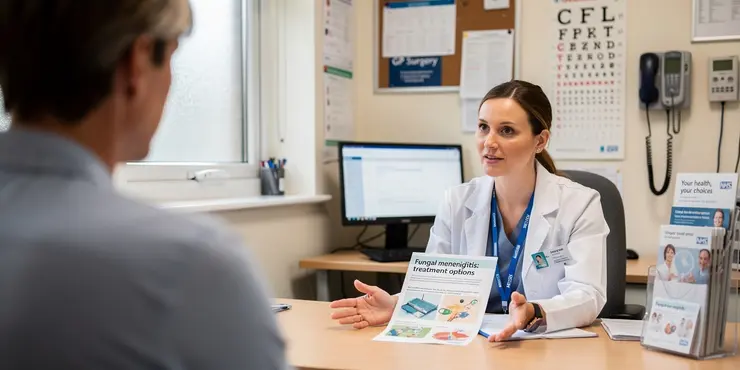
How is fungal meningitis treated?
Relevance: 67%
-
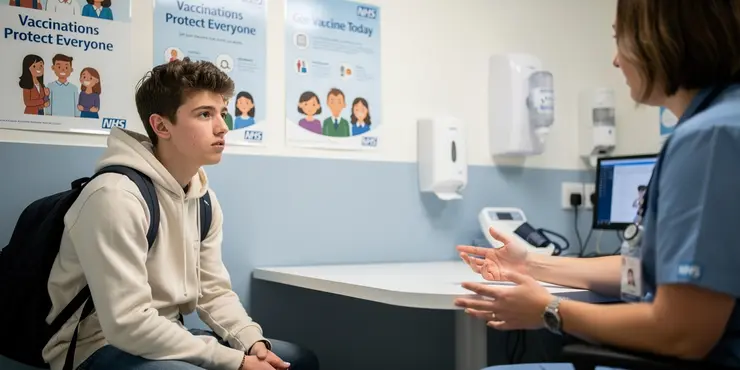
Should college students get the meningitis vaccine?
Relevance: 66%
-

Do international students need the meningitis vaccine?
Relevance: 66%
-
What are the meningitis vaccination recommendations for travelers to Hajj or Umrah?
Relevance: 65%
-
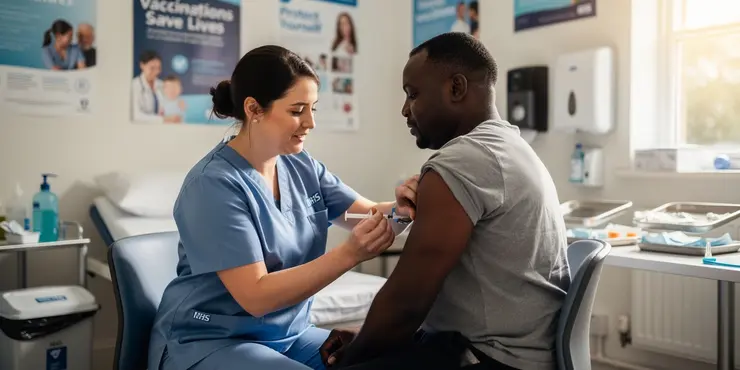
What are the guidelines for meningitis vaccination for HIV-infected individuals?
Relevance: 61%
-
What is the difference between type 1 and type 2 diabetes?
Relevance: 38%
-

Type 1 Diabetes supporting adults to manage Type 1 diabetes
Relevance: 36%
-

Is Type 2 Diabetes hereditary?
Relevance: 35%
-
What is type 1 diabetes?
Relevance: 35%
-
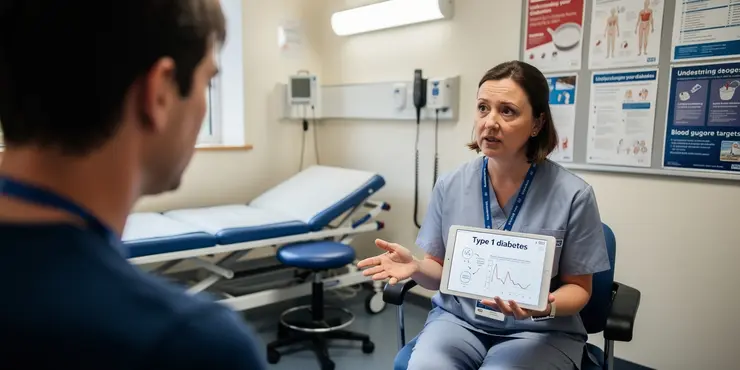
What is type 1 diabetes?
Relevance: 35%
-

Are there different types of ADHD?
Relevance: 35%
-
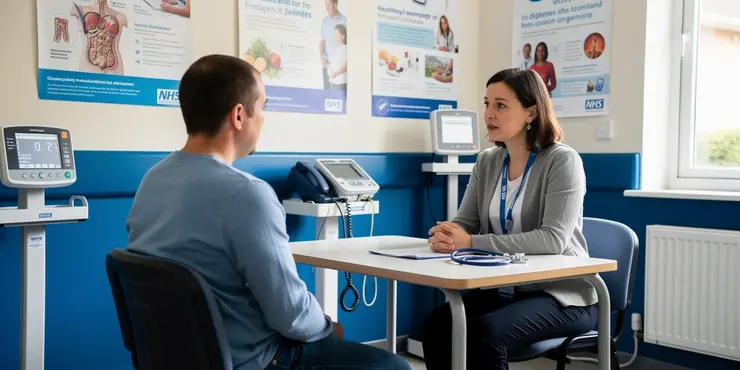
Is Ozempic suitable for type 1 diabetes?
Relevance: 33%
-
Is there a genetic predisposition to type 1 diabetes?
Relevance: 33%
-
Can people of any blood type receive a transfusion of any blood type?
Relevance: 33%
Meningitis Overview
Meningitis is an inflammation of the protective membranes covering the brain and spinal cord, known as the meninges. This condition can result from various causes, leading to different forms of meningitis. Understanding the main types of meningitis can help in recognizing the symptoms and seeking appropriate treatment.
Bacterial Meningitis
Bacterial meningitis is a severe and potentially life-threatening form of meningitis. It is caused by bacterial infections that invade the meninges. The most common bacteria responsible in the UK are Neisseria meningitidis and Streptococcus pneumoniae. Vaccines are available to protect against some types of bacteria that cause meningitis. Symptoms typically include a sudden onset of fever, headache, and neck stiffness. Rapid treatment with antibiotics is crucial to prevent serious complications.
Viral Meningitis
Viral meningitis, also known as aseptic meningitis, is more common and generally less severe than bacterial meningitis. It is caused by viruses such as enteroviruses, herpes simplex virus, and the mumps virus. Most people recover fully with supportive treatment, which may include fluid intake, rest, and over-the-counter medications for pain and fever. Symptoms often include headache, fever, irritability, and sensitivity to light.
Fungal Meningitis
Fungal meningitis is a rare form of the disease and primarily occurs in individuals with weakened immune systems, such as those with HIV/AIDS or cancer. It is caused by fungi that spread through the bloodstream to the brain and spinal cord. Cryptococcus is a common fungus that causes meningitis in immunocompromised individuals. Treatment involves long-term antifungal medications.
Parasitic Meningitis
Parasitic meningitis is less common and occurs when parasites invade the nervous system. One rare type is amebic meningitis, caused by Naegleria fowleri, commonly found in warm freshwater. This type is usually fatal, and preventive measures include avoiding freshwater sources known to harbour the parasite.
Non-Infectious Meningitis
Non-infectious meningitis results from conditions that aren't caused by infections. These can include autoimmune disorders, certain medications, cancer, or head injuries. While not caused by pathogens, the inflammation needs to be managed by treating the underlying condition. The symptoms can be similar to other forms of meningitis, including headache and neck stiffness.
Conclusion
Recognizing the symptoms and understanding the different types of meningitis is crucial for timely diagnosis and treatment. It's important for individuals, especially in at-risk populations, to be aware of the preventative measures available, such as vaccinations, and seek medical advice if symptoms arise.
Meningitis Overview
Meningitis is when the thin layers around the brain and spine get swollen. These layers are called the meninges. Different things can cause meningitis. It's important to know the types to spot symptoms and get the right help.
Bacterial Meningitis
Bacterial meningitis is a serious type of meningitis that can be life-threatening. It is caused by bad germs (bacteria) entering the covering of the brain and spine. In the UK, common bacteria are Neisseria meningitidis and Streptococcus pneumoniae. There are vaccines to help prevent this type of meningitis. Signs include a sudden fever, headaches, and a stiff neck. Quick treatment with medicine called antibiotics is very important.
Viral Meningitis
Viral meningitis is more common and not as dangerous as bacterial meningitis. It is caused by viruses like enterovirus, herpes simplex virus, and mumps virus. People usually get better with simple treatment like drinking fluids, resting, and using medicine for pain and fever. Common signs are headaches, fever, feeling cranky, and being sensitive to light.
Fungal Meningitis
Fungal meningitis is not common. It usually affects people who are already sick or have weak bodies, like those with HIV/AIDS or cancer. Fungi travel in the blood to the brain and spine. A common fungus causing this type is Cryptococcus. Treatment uses long-term medicine to fight the fungus.
Parasitic Meningitis
Parasitic meningitis is rare and happens when tiny living things (parasites) enter the nervous system. One type is amebic meningitis, caused by Naegleria fowleri, often found in warm lakes. This type is very dangerous. It's best to avoid these waters as a precaution.
Non-Infectious Meningitis
Non-infectious meningitis isn't caused by germs. It can happen because of other health problems, medicines, cancer, or head injuries. The swelling still needs care by treating what's causing it. The signs are like other types: headaches and a stiff neck.
Conclusion
Knowing the signs and different meningitis types helps in getting help fast. People should be aware of prevention tips like vaccines and visit a doctor if they have symptoms.
Frequently Asked Questions
What is meningitis?
Meningitis is an inflammation of the protective membranes covering the brain and spinal cord, known collectively as the meninges.
What are the main types of meningitis?
The main types of meningitis are viral, bacterial, fungal, parasitic, and non-infectious meningitis.
What causes viral meningitis?
Viral meningitis is most commonly caused by enteroviruses, but can also be caused by herpes simplex virus, varicella zoster virus, mumps virus, and others.
What are the symptoms of bacterial meningitis?
Symptoms of bacterial meningitis can include sudden fever, headache, stiff neck, sensitivity to light, confusion, and nausea.
How is fungal meningitis contracted?
Fungal meningitis is usually contracted by inhaling fungal spores, which can then spread to the meninges.
Is parasitic meningitis common?
Parasitic meningitis is less common than viral or bacterial meningitis and can be caused by parasites like Angiostrongylus cantonensis.
What are non-infectious causes of meningitis?
Non-infectious meningitis can be caused by medications, systemic illnesses such as lupus, and certain cancers.
How is bacterial meningitis treated?
Bacterial meningitis is typically treated with antibiotics and sometimes corticosteroids to reduce inflammation.
Can viral meningitis be treated with antibiotics?
No, antibiotics do not treat viral infections. Viral meningitis often resolves on its own, but severe cases may require antiviral medication.
How do vaccines prevent meningitis?
Vaccines such as the Hib vaccine, pneumococcal vaccine, and meningococcal vaccine protect against bacteria that cause meningitis.
Who is at higher risk for meningitis?
Infants, young children, older adults, and those with weakened immune systems are at a higher risk for meningitis.
Can meningitis be spread from person to person?
Yes, bacterial and viral meningitis can be spread through respiratory secretions such as coughing or kissing.
What is the prognosis for someone with meningitis?
The prognosis varies depending on the type and severity; viral meningitis often improves on its own, while bacterial meningitis can be more serious and requires prompt treatment.
What are the long-term effects of meningitis?
Possible long-term effects include hearing loss, memory difficulties, learning disabilities, and gait problems, particularly following bacterial meningitis.
How is meningitis diagnosed?
Meningitis is often diagnosed by a lumbar puncture (spinal tap) to analyze cerebrospinal fluid for signs of infection.
What are the signs of severe meningitis?
Severe meningitis signs include severe headache, high fever, stiff neck, altered consciousness, and seizures.
Are there ways to prevent viral meningitis?
Prevention of viral meningitis includes good hygiene practices, such as hand washing and not sharing personal items.
Is meningitis a medical emergency?
Yes, bacterial meningitis is a medical emergency that requires immediate treatment. Viral meningitis usually is less severe but should still be evaluated by a healthcare provider.
Can pets transmit meningitis to humans?
It is uncommon for pets to transmit meningitis to humans, but certain zoonotic infections from animals can theoretically lead to meningitis.
What lifestyle changes can reduce the risk of meningitis?
A healthy lifestyle, including vaccinations, good hygiene, and avoiding tobacco smoke, can reduce the risk of contracting meningitis.
What is meningitis?
Meningitis is an illness. It makes the brain and spine swell and hurt. This can make you feel very sick.
If you need help understanding, ask someone you trust to explain.
Remember:
- Brains and spines help your body work.
- If you feel very sick, tell an adult.
- Use pictures or videos to learn more.
Meningitis means that parts covering your brain and spine, called the meninges, get swollen.
What are the main types of meningitis?
Meningitis is when the thin layers around your brain and spine get swollen.
There are different types of meningitis:
- Viral meningitis: This is caused by a virus. It is usually not very serious.
- Bacterial meningitis: This happens because of bacteria. It is dangerous and needs quick help from a doctor.
- Fungal meningitis: This is from a fungus. It is rare.
- Parasitic meningitis: This comes from small parasites. It does not happen often.
- Non-infectious meningitis: This is not from germs. It can be from other things like cancer or a head injury.
If you find reading hard, you can try listening to audiobooks. You can also use reading apps that read out loud to help you understand better.
There are different kinds of meningitis: virus, bacteria, fungus, parasite, and non-infectious meningitis.
What makes people get viral meningitis?
Viral meningitis is an illness caused by germs called viruses. The most common viruses that cause it are enteroviruses. Other viruses that can cause it are herpes, chickenpox, mumps, and more.
What happens if you have bacterial meningitis?
Bacterial meningitis is an illness. Here are signs to watch for:
- Bad headache (your head hurts a lot)
- Neck feels very stiff (you can't move it easily)
- Fever (your body is too hot)
- Throwing up (you feel sick in your tummy and might vomit)
- Bright lights hurt your eyes
- Feeling very sleepy or confused
- Blotchy skin rash that doesn't fade when a glass is rolled over it
If you see these signs, tell an adult. You need to see a doctor to get help.
Use simple language as a tool. Pictures of the symptoms can help understand better.
If you have bacterial meningitis, you might feel sick very quickly. You could get a high temperature, a sore head, a neck that hurts and won't bend easily, want to throw up, feel confused, or not like bright lights.
How do people catch fungal meningitis?
Fungal meningitis is a sickness you can get from tiny germs called fungi. Here is how you might catch it:
- If you have a weak body that can't fight germs well.
- If you breathe in these tiny fungi from the air.
- Sometimes, if you have other bad illnesses, you can get it.
To stay safe:
- Wash your hands often.
- Stay away from places with lots of fungi.
- Talk to your doctor if you feel sick or worried.
Fungal meningitis happens when tiny bits of fungus called spores are breathed in. These spores can move to the part of the body called the meninges, and cause infection there.
Is parasitic meningitis common?
Parasitic meningitis is not common. It is very rare for people to get. If you want to read more, using audio books or asking someone to read with you can help. Pictures and videos can also make it easier to understand.
Parasitic meningitis is not as common as viral or bacterial meningitis. It happens when a parasite, like Angiostrongylus cantonensis, makes you sick.
What can cause meningitis if it is not an infection?
Meningitis can happen without germs. Here are some reasons: 1. **Injury:** Getting hurt in the head. 2. **Cancer:** A serious illness that can affect the brain. 3. **Medicines:** Some medicines can cause problems. 4. **Autoimmune diseases:** When the body fights itself by mistake. If you need help, ask a doctor or use picture charts to understand better.Meningitis that you can't catch from other people can happen for different reasons. It might be because of some medicines, or if you have an illness like lupus. Some types of cancer can also cause it.
How do doctors treat bacterial meningitis?
Bacterial meningitis is a sickness caused by germs.
Doctors give special medicine called antibiotics to kill the germs.
It's important to start treatment quickly to get better.
Sometimes, doctors also give other medicine to help with pain and swelling.
It is best to go to the hospital for treatment.
Support tools like using pictures or videos about what happens at the hospital can be helpful.
Bacterial meningitis is usually treated with medicine called antibiotics. Doctors might also use another medicine called corticosteroids to help with swelling.
Can medicine help with viral meningitis?
Meningitis is a sickness in the brain. There are two main types: viral and bacterial. Not all medicines can help with viral meningitis. Antibiotics, a type of medicine, do not work on viral meningitis, but they can help with bacterial meningitis. Rest, fluids, and support from a doctor are good for getting better. Tell a grown-up if you feel sick. A doctor can help you feel better. Use pictures and stories to help understand more.
No, antibiotics do not help with viruses. Viral meningitis usually gets better by itself, but if it's bad, doctors might give medicine for viruses.
How do vaccines stop meningitis?
Vaccines help your body fight diseases. 1. **What is meningitis?** Meningitis is a sickness. It makes the brain and spine swell. 2. **How do vaccines work?** Vaccines teach your body to fight germs. They act like a practice drill. 3. **Why are vaccines important?** They keep you from getting really sick. **Tips to remember:** - If you have questions, ask a grown-up or doctor. - Use pictures or videos to learn more. - Write notes to help you understand.Some medicines called vaccines help protect us from getting sick. The Hib vaccine, pneumococcal vaccine, and meningococcal vaccine stop bad germs from giving us an illness called meningitis.
Who can get meningitis more easily?
Babies, young kids, older people, and people who get sick easily need to be more careful about meningitis.
Can you catch meningitis from someone else?
Yes, you can catch bacterial and viral meningitis from coughs or kisses.
What happens if someone has meningitis?
If someone has meningitis, it means they have an illness caused by germs.
They might get better quickly, or they might need help for a long time.
It's very important to see a doctor if you think someone has meningitis. The doctor can give medicine to help.
Some helpful tips are:
- Ask the doctor questions if you don't understand.
- Use pictures or videos to help learn more.
- Write down any new words and what they mean.
The outlook depends on what type it is and how bad it is. Viral meningitis often gets better by itself. But bacterial meningitis is more serious and needs quick treatment.
What happens after having meningitis for a long time?
Some problems can happen later. These might be:
- Not hearing well
- Forgetting things
- Finding learning hard
- Finding it hard to walk well
This can happen after having bacterial meningitis.
Using tools like hearing aids, memory games, and special learning help can be useful.
How do doctors find out if someone has meningitis?
Doctors do some tests to check for meningitis.
Here’s how they do it:
- They ask questions about how the person is feeling.
- They check the person’s body for signs of meningitis.
- They might take a little bit of blood or fluid from the person’s back to test it.
Sometimes, doctors use a machine to take pictures inside the person’s head.
Doctors use these tests to help them know if a person has meningitis.
If you need help understanding, you can ask someone to explain it to you or use pictures to help.
Doctors find out if someone has meningitis by doing a test called a lumbar puncture, or spinal tap. This test checks the fluid around the spine and brain to see if there is an infection.
If it is hard to understand medical words, try using easy words or ask someone to explain them.
What are the signs of bad meningitis?
Meningitis is an illness. It makes the brain and spine hurt.
Here are signs of bad meningitis:
- High fever - This means your body feels very hot.
- Bad headache - This is when your head hurts a lot.
- Stiff neck - It is hard to move your neck.
- Bright lights hurt your eyes.
- Confusion - Feeling mixed up or not thinking clearly.
- Sleepy - Feeling very tired and wanting to sleep.
- Rashes - Red spots on your skin.
If you see these signs, tell an adult right away. It is important to see a doctor quickly.
Try using pictures and videos to help understand. Talk with someone who can help explain.
Signs of bad meningitis include a very bad headache, high fever, a neck that can't move well, being very sleepy or confused, and having fits (seizures).
How can we stop viral meningitis?
There are things you can do to help stop viral meningitis:
- Wash your hands with soap and water often.
- Cover your mouth when you cough or sneeze.
- Avoid close contact with people who are sick.
- Clean surfaces like door handles and toys.
Ask a grown-up to help you with these things if you need it.
To help stop the spread of viral meningitis, it's important to keep clean. Wash your hands often and don't share your personal things with others.
Is meningitis a medical emergency?
Meningitis is a serious illness. It means the brain and the spine are swollen.
If you think someone has meningitis, they need help fast. Take them to the doctor or hospital right away.
Signs of meningitis include:
- Fever
- Bad headache
- Neck feels stiff
- Dislike bright lights
- Feeling sick or throwing up
Use clear pictures and easy words to help understand.
Bacterial meningitis is very serious. You need to go to the doctor right away. Viral meningitis is not as bad, but you should still see a doctor.
Can pets give people meningitis?
Meningitis is an illness that can make people very sick.
It is very rare, but pets can sometimes pass germs that cause meningitis to humans.
Make sure to wash your hands after playing with pets to stay healthy.
Ask an adult or a doctor if you want to know more.
It is not usual for pets to give people meningitis. But sometimes, animals can give us infections that might cause meningitis.
How can you change your life to prevent meningitis?
Meningitis is an illness. You can do things to keep safe:
- Wash your hands often. This helps stop germs.
- Cover your mouth with a tissue when you sneeze or cough. Throw the tissue away.
- Get your vaccines. Vaccines can protect you from some meningitis.
- Eat healthy foods like fruits and vegetables. This makes your body strong.
- Rest well. Sleep helps your body fight illness.
If you need help, ask a doctor, nurse, or friend. They can give you more ideas.
Living healthy can help you avoid getting sick with meningitis. To stay healthy, you can:
- Get your vaccines. These are important shots that help keep you safe.
- Wash your hands to stay clean. This helps stop germs.
- Stay away from cigarette smoke. Smoking is not good for you.
These things can help you stay strong and healthy!
Useful Links
This website offers general information and is not a substitute for professional advice.
Always seek guidance from qualified professionals.
If you have any medical concerns or need urgent help, contact a healthcare professional or emergency services immediately.
Some of this content was generated with AI assistance. We’ve done our best to keep it accurate, helpful, and human-friendly.
- Ergsy carfully checks the information in the videos we provide here.
- Videos shown by Youtube after a video has completed, have NOT been reviewed by ERGSY.
- To view, click the arrow in centre of video.
- Most of the videos you find here will have subtitles and/or closed captions available.
- You may need to turn these on, and choose your preferred language.
- Go to the video you'd like to watch.
- If closed captions (CC) are available, settings will be visible on the bottom right of the video player.
- To turn on Captions, click settings .
- To turn off Captions, click settings again.
More Items From Ergsy search
-

What are the main types of meningitis?
Relevance: 100%
-

What is meningitis?
Relevance: 83%
-

Are there vaccines for meningitis?
Relevance: 82%
-
Is meningitis contagious?
Relevance: 82%
-

Can meningitis be prevented?
Relevance: 76%
-

How is meningitis diagnosed?
Relevance: 75%
-

What is the treatment for bacterial meningitis?
Relevance: 74%
-

What is non-infectious meningitis?
Relevance: 74%
-

Why is meningitis a medical emergency?
Relevance: 73%
-

What causes bacterial meningitis?
Relevance: 73%
-

Is vaccination recommended for seniors against meningitis?
Relevance: 73%
-

How serious is bacterial meningitis?
Relevance: 72%
-

What are the signs of meningitis in infants?
Relevance: 71%
-

Can meningitis cause long-term complications?
Relevance: 71%
-

Are adults over 25 recommended for meningitis vaccination?
Relevance: 70%
-

How is viral meningitis spread?
Relevance: 69%
-

What are common symptoms of meningitis?
Relevance: 69%
-

What causes viral meningitis?
Relevance: 68%
-

Is meningitis vaccination required for military recruits?
Relevance: 68%
-

Who should get a meningitis vaccination?
Relevance: 68%
-

What is the prognosis for viral meningitis?
Relevance: 68%
-

Does the CDC recommend meningitis vaccines for adolescents?
Relevance: 68%
-

Are there any specific groups that should prioritize meningitis vaccination?
Relevance: 68%
-

Should health care workers get the meningitis vaccine?
Relevance: 68%
-

Do people who have had meningitis in the past need to be vaccinated?
Relevance: 67%
-

Who is at higher risk of contracting meningitis?
Relevance: 67%
-

How is fungal meningitis treated?
Relevance: 67%
-

Should college students get the meningitis vaccine?
Relevance: 66%
-

Do international students need the meningitis vaccine?
Relevance: 66%
-
What are the meningitis vaccination recommendations for travelers to Hajj or Umrah?
Relevance: 65%
-

What are the guidelines for meningitis vaccination for HIV-infected individuals?
Relevance: 61%
-
What is the difference between type 1 and type 2 diabetes?
Relevance: 38%
-

Type 1 Diabetes supporting adults to manage Type 1 diabetes
Relevance: 36%
-

Is Type 2 Diabetes hereditary?
Relevance: 35%
-
What is type 1 diabetes?
Relevance: 35%
-

What is type 1 diabetes?
Relevance: 35%
-

Are there different types of ADHD?
Relevance: 35%
-

Is Ozempic suitable for type 1 diabetes?
Relevance: 33%
-
Is there a genetic predisposition to type 1 diabetes?
Relevance: 33%
-
Can people of any blood type receive a transfusion of any blood type?
Relevance: 33%


